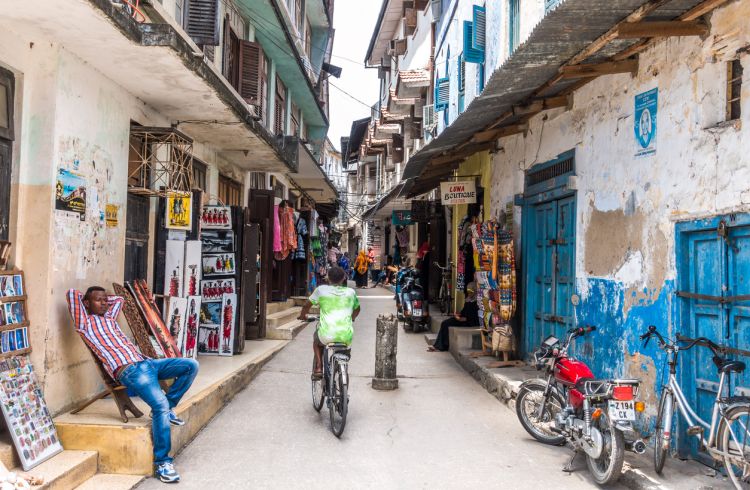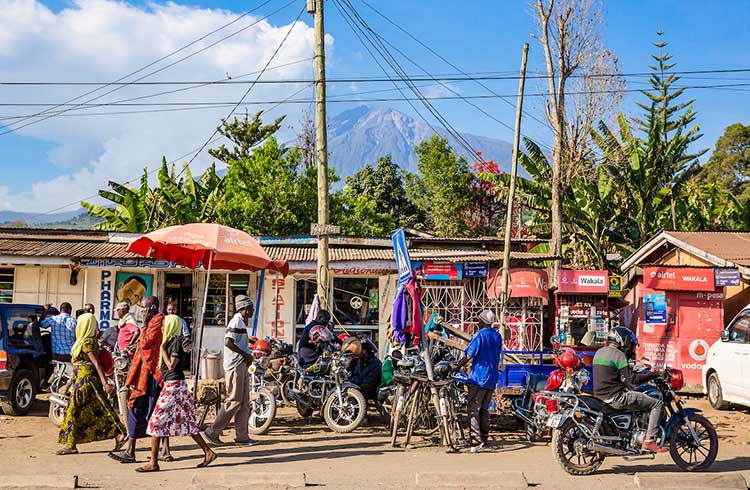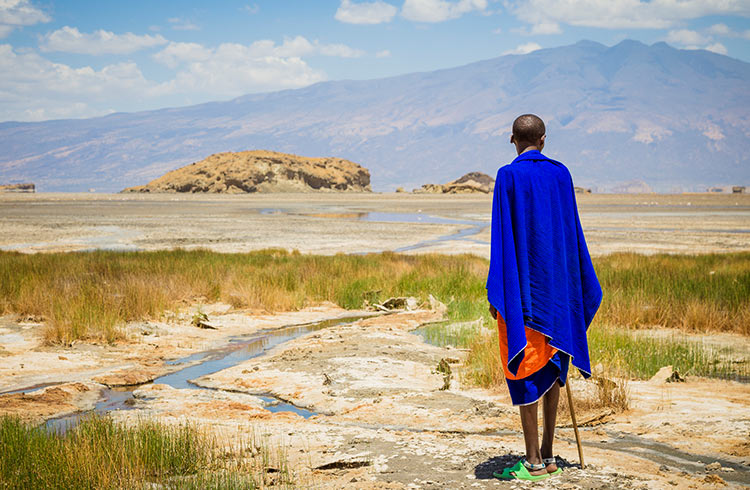Is Crime a Problem in Tanzania? How To Travel Safely
Tanzania has amazing wilderness, incredible natural landscapes and friendly people. But to ensure you have a great trip, here are some tips to keep you safe.
 Photo © Getty Images/borchee
Photo © Getty Images/borchee
With tourism comes opportunities for crims to make a quick dollar by stealing your stuff. While Tanzania isn‘t as bad as some other African countries, it still pays to be alert and take steps to protect yourself and belongings as you would traveling anywhere else.
- Petty Crime in Tanzania
- Serious Crime in Tanzania
- Bribery in Tanzania
- How to Avoid Bribes
- Troublespots in Tanzania
- Safety Tips for Tanzania
Petty Crime in Tanzania
Pickpockets and con artists operate in crowded markets and transport hubs. Keep your valuables secure and well hidden.
Don't be fooled by the playfulness of small children; they may have been forced into a life of crime and may be there to distract you.
When you visit the beach, only take what you need with you. Leave your valuables locked up back at your accommodation.
Most robberies are ‘snatch and run‘. Thieves wait for the opportunity to grab something and then disappear into the crowd.
Never carry anything of value in your pockets and don't dangle expensive camera equipment from your neck. Never leave bags unattended.
The golden rule – don‘t try and be a hero in dangerous situations. Things can be replaced, but you can't.
Serious Crime in Tanzania
Violent crime against foreigners is not uncommon, particularly those walking alone at night.
Only use registered taxis or those from established taxi zones or booked in advance. Also, avoid walking alone near the beach.
Take care when in Dar es Salaam, particularly on Toure Drive, as carjackings and muggings have occurred. People have also been mugged while taking an early morning jog in Mwanza city center.
Never accept food, drinks or cigarettes from strangers; there have been reports of tourists being drugged with laced candy while on long-haul bus trips, only to wake up later to find their luggage gone.
Tourists have also been kidnapped, robbed and forced, with the threat of violence, to withdraw cash from ATMs in Dar Es Salaam. Even though all the victims were released (a classic example of express kidnapping) all were shaken by the threat of violence, and some were assaulted.
Bribery in Tanzania
Police are poorly paid – many make less than $40/month – so you may be solicited for a bribe by an official willing to turn a blind eye to your infraction, fabricated or otherwise.
'On-the-spot-fine' is one term used for a bribe; those words are meant to initiate a conversation about money. If you don't want to participate in bribery offer to go to the police station to pay the fine – sometimes that can get you off the hook, especially if their supervisors are in the vicinity. Don't hand over any papers or important documents unless you really need to.
Fraudsters are known to impersonate police, sometimes in the guise of an "immigration official" who identifies a problem with your documents. They will flash official-looking papers at you. Ask them to explain the situation clearly and for their official ID. If you are dealing with someone in uniform, they are almost certainly an actual officer, so don‘t question them too hard.
The worst of all situations is when a bone fide police officer oversteps the mark. Tanzanian police have an unfortunate reputation for being some of the most corrupt in East Africa. Some have been known to be drunk on the job and may become threatening. A night in a local jail is not worth a few bucks in bribes.
There have also been reports of police pulling over taxis carrying tourists in Dar es Salaam asking for bribes. Always remain calm, be polite and leave it to the taxi driver to handle the situation.
How to Avoid Bribes
Involve other people – fraudsters or corrupt officials are unlikely to carry out their schemes in front of an audience.
Ask a local for a translation of the situation – this could put the scammer off getting money out of you. Always ask to see an official government ID.
Suggest you both go to your country's embassy to have an official translate the conversation for you – tt this point, the scammer will usually have a look of horror on their face.
Tanzanians are very polite people, so they won‘t normally ask directly for things. So playing dumb is often a good way to get out of a bribe.
Tell them you've only just arrived in the country, even if it's your 100th visit. If you know some Kiswahili, keep that to yourself. While this won‘t work every time, it will make them question whether they want to go ahead with the scam and hopefully the hassle of trying to communicate with you may deter them.
Tip: Split your money up into smaller amounts, that way if you have no other choice but to pay a bribe, the scammer won't see all of your money.
Troublespots in Tanzania
- Arusha (the launching point for climbing Mt Kilimanjaro). Theft by armed bandits has occurred.
- Stone Town in Zanzibar.
- Dar es Salaam – bag snatching has increased in the city. Avoid hanging onto your bag if a thief rides past and grabs it or you could end up injured or at worst, dragged along.
- Armed robberies have occurred at Ngorongoro Crater.
Border Zones
- Burundi: Considered a high-risk country by several government travel advisories due to continual political unrest, bandits and terrorism.
- Rwanda: The border between Tanzania and Rwanda has a high risk of bandits, armed conflict and kidnapping. The Australian Government travel advisory recommends using a police escort or private security when traveling the Rusomo to Kahama Road.
- Democratic Republic of Congo: Frequent clashes between armed rebel forces and the DRC military occur.
Safety Tips for Tanzania
- Get local knowledge on the dangerous areas.
- Constantly remain vigilant. Travel can sometimes be confronting and noting your surroundings and who's around can help put you at ease.
- Do your research when it comes to companies offering safaris, tours and other activities; this applies not just in Tanzania but across Africa. Some companies have a poor track record when it comes to safety such as equipment, transport, inexperienced/unskilled staff and more.
- Keep your valuables close to you or locked up in your accommodation.
- Snatch and grabs occur in busy places including markets and even in traffic. if you feel like people are a bit too close, duck into a building or shop to get some breathing space. Keep windows closed and belongings stowed out of view while traveling.
- Try to keep cameras concealed, muggings are common and you don't want to lose all your holiday memories.
- Avoid walking or traveling after dark on isolated roads. Take registered taxis in downtown areas.
- Avoid traveling at night in rural locations. Aside from the presence of bandits, there is a danger of accidents caused by potholes.
- Look out for scams – if it sounds too good to be true, it probably is. Stick to your itinerary and don't be too trusting.
Related articles
Simple and flexible travel insurance
You can buy at home or while traveling, and claim online from anywhere in the world. With 150+ adventure activities covered and 24/7 emergency assistance.
Get a quote

No Comments